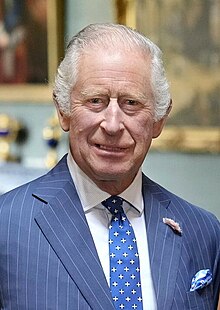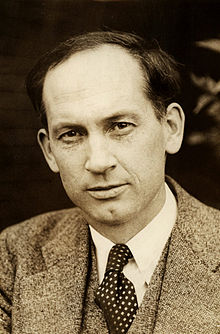Portal:Canada
| Showcase | Contents | Contributing |
Introduction
Canada is a country in North America. Its ten provinces and three territories extend from the Atlantic Ocean to the Pacific Ocean and northward into the Arctic Ocean, making it the world's second-largest country by total area, with the world's longest coastline. Its border with the United States is the world's longest international land border. The country is characterized by a wide range of both meteorologic and geological regions. With a population of just over 41 million people, it has widely varying population densities, with the majority residing in urban areas and large areas of the country being sparsely populated. Canada's capital is Ottawa and its three largest metropolitan areas are Toronto, Montreal, and Vancouver.
Canada is a parliamentary democracy and a constitutional monarchy in the Westminster tradition. The country's head of government is the prime minister, who holds office by virtue of their ability to command the confidence of the elected House of Commons and is appointed by the governor general, representing the monarch of Canada, the ceremonial head of state. The country is a Commonwealth realm and is officially bilingual (English and French) in the federal jurisdiction. It is very highly ranked in international measurements of government transparency, quality of life, economic competitiveness, innovation, education and human rights. It is one of the world's most ethnically diverse and multicultural nations, the product of large-scale immigration. Canada's long and complex relationship with the United States has had a significant impact on its history, economy, and culture.
A developed country, Canada has a high nominal per capita income globally and its advanced economy ranks among the largest in the world by nominal GDP, relying chiefly upon its abundant natural resources and well-developed international trade networks. Recognized as a middle power, Canada's strong support for multilateralism and internationalism has been closely related to its foreign relations policies of peacekeeping and aid for developing countries. Canada is part of multiple international organizations and forums. (Full article...)
Featured article -
Canadian comics refers to comics and cartooning by citizens of Canada or permanent residents of Canada regardless of residence. Canada has two official languages, and distinct comics cultures have developed in English and French Canada. The English tends to follow American trends, and the French, Franco-Belgian ones, with little crossover between the two cultures. Canadian comics run the gamut of comics forms, including editorial cartooning, comic strips, comic books, graphic novels, and webcomics, and are published in newspapers, magazines, books, and online. They have received attention in international comics communities and have received support from the federal and provincial governments, including grants from the Canada Council for the Arts. There are comics publishers throughout the country, as well as large small press, self-publishing, and minicomics communities. (Full article...)
Featured biography -
Harold Adams Innis FRSC (November 5, 1894 – November 8, 1952) was a Canadian professor of political economy at the University of Toronto and the author of seminal works on media, communication theory, and Canadian economic history. He helped develop the staples thesis, which holds that Canada's culture, political history, and economy have been decisively influenced by the exploitation and export of a series of "staples" such as fur, fish, lumber, wheat, mined metals, and coal. The staple thesis dominated economic history in Canada from the 1930s to 1960s, and continues to be a fundamental part of the Canadian political economic tradition. Innis has been referred to as the "father of communications theory" and as the "father of Canadian economic history". (Full article...)
Selected panorama -
National symbol -
"O Canada" (French: Ô Canada) is the national anthem of Canada. The song was originally commissioned by Lieutenant Governor of Quebec Théodore Robitaille for the 1880 Saint-Jean-Baptiste Day ceremony; Calixa Lavallée composed the music, after which French-language words were written by the poet and judge Sir Adolphe-Basile Routhier. (Full article...)
Selected vital article -

The monarchy of Canada is Canada's form of government embodied by the Canadian sovereign and head of state. It is one of the key components of Canadian sovereignty and sits at the core of Canada's constitutional federal structure and Westminster-style parliamentary democracy. The monarchy is the foundation of the executive (King-in-Council), legislative (King-in-Parliament), and judicial (King-on-the-Bench) branches of both federal and provincial jurisdictions. The current monarch is King Charles III, who has reigned since 8 September 2022. (Full article...)
Selected picture -
Credit: Image by Alan D. Wilson, modified by Diliff (cropped and noise reduction applied).
Current events
- January 21, 2025 –
- Much of Canada and the contiguous United States are impacted by a cold wave, killing one person near Milwaukee, Wisconsin. Historic snowfall is expected in the US South, and historic blizzard and whiteout conditions are expected on the Gulf Coast. (CNN)
- January 6, 2025 –
- Davivienda, of Colombia, and Scotiabank, of Canada, announced a merger where Davivienda absorbs Scotiabank operations in Colombia, Costa Rica and Panama, and, in turn, Scotiabank acquires 20% of the stakes in Davivienda. (Scotiabank)
- January 6, 2025 – Resignation of Justin Trudeau
- Canadian Prime Minister Justin Trudeau announces his resignation as leader of the Liberal Party and also announces that he will resign as Prime Minister once a new Liberal Party leader is chosen. (BBC News)
- January 1, 2025 – Foreign relations of Mexico
- Mexico's Tax Administration Service implements new tariffs, including a 19% duty on goods from countries without international trade agreements with Mexico and a 17% duty on goods from Canada and the United States under certain value thresholds. (Reuters)
- December 16, 2024 – Resignation of Chrystia Freeland
- Chrystia Freeland resigns as Canada's Deputy Prime Minister and Minister of Finance amid disagreements with Prime Minister Justin Trudeau on increased government spending and how to handle possible U.S. tariffs imposed by the incoming Trump administration. (Reuters)
- December 11, 2024 – Russo-Ukrainian War
- The Parliament of Canada approves the allocation of CA$764 million (US$587 million) in military aid to Ukraine. (Ukrainska Pravda)
Did you know -

- ... that more than one million applications for the Canadian Dental Care Plan were approved in its first three months?
- ... that Bethune: The Making of a Hero, once Canada's most expensive film, had a documentary about its troubled production shown at the 1988 Toronto International Film Festival instead of itself?
- ... that a year after becoming the first woman president of the Canadian Political Science Association, Caroline Andrew moderated the first Canadian leaders' debate on women's issues?
- ... that after years of development, the British thin-wing Javelin interceptor aircraft was cancelled in favour of purchasing the Canadian Avro Arrow?
- ... that Carrie Jenkins Harris, the North American writer who died in 1903, should not be confused with Carrie Jenkins Harris, the North American writer and editor who died in 1903?
- ... that the parasitic fossil fungus Paleoserenomyces allenbyensis was named after a Canadian ghost town?
- ... that up to 129,000 Canadian federal workers went on strike?
Featured list -
The leader of the Official Opposition (French: chef de l'Opposition officielle), formally known as the leader of His Majesty's Loyal Opposition (French: chef de la loyale opposition de Sa Majesté), is the politician who leads the Official Opposition in Canada, typically the leader of the party possessing the most seats in the House of Commons that is not the governing party or part of the governing coalition. (Full article...)
Main articles
Associated Wikimedia
The following Wikimedia Foundation sister projects provide more on this subject:
-
Commons
Free media repository -
Wikibooks
Free textbooks and manuals -
Wikidata
Free knowledge base -
Wikinews
Free-content news -
Wikiquote
Collection of quotations -
Wikisource
Free-content library -
Wikiversity
Free learning tools -
Wikivoyage
Free travel guide -
Wiktionary
Dictionary and thesaurus





























